|
|
The stair-case (Câù thang) Hanoi, 2005 Video
The ancient Chinese scholar said 'painting or writing poetry is your spare energy and it is for fun' (Thi dù mach) and perhaps it is true for me. Life is not easy, expecially being a woman. You have to take so many responsibilities such as a resonsibility of being a mother, a responsibility of being a wife, a responsibility of being a dauther-in law. Time goes very fast and sometimes it goes so slowly, you are in hurry for living and the bundle of domesticity. For me, art is something luxury and it is a rest energy of yours as an ancient Chinese saying. My art is a mixture of happiness and the stolen moments in a narrow gap of carrying all responsibilities of a woman. I wish I would love to do something for myself. What is for myself? It may be a painting or a poem ot it is simply a quiet moment? Sometimes, an idea suddenly come when you are laying in bed between your two children, that makes you impossible to sleep, you are traveling with your idea, you are excited and you think you will do it tomorrow. Then, the next morning, you are busy again as usual. You try to keep it in your diary, you hope will do it one day. However those ideas exist only in your diary. Life is going on.
|
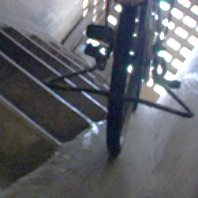
|

|
|
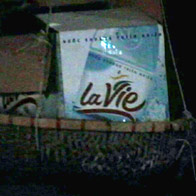 La Vie (Dòi sông) La Vie (Dòi sông)
Hanoi, 2005 Video
Who are they? Where they come from? They are women, at any age from a young girl to an old lady of 74 of age. They come from different countryside. They were farmers and they are now. They leave their children at home with their parents of their husband who take care of children and cultivate the field. They are a part of the city´s life. We see them everywhere, they sell many things. Some of them collect rubish, some others sell bread, plastic things, shoes, underwear, fruits. They stay in a cheap shelter and cook in a small group, sleep there. If do not sell things or collect things, they will do services at cleaning, tidying, cooking for some families and get paid by hour. With those income (incomparison to city´s life) they could support their family and it may be enough for them to build a house in the countryside. They go bac home sometimes for special occasion (Festival or ceremony of their family, we call 'ngay gio' the day which your ancestor died or havest´s time or getting sick). The life in the city is hard but they like it, they do not want to go back to their countryside because city is so excited and much more interesting than their homeland. Being away from home and busy in earning, some women can not take care of their children, the children may involve with drug or her husband find other women. Some family, they move all their family here to city. We do not see them in the city if it is special holiday such as Tet (lunar new year or National day) they have to be home because it is a tradition an family´s obligation. The city become less busy and quieter.
|

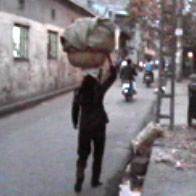
|

|
|
The future saving (Cua de danh)
It is a circle of women's life We call 'Cua de danh' to talk about our children. It means that you are future saving. Having children or having a lot of children is a responsibility and a duty of a woman, it is a traditional concept and it is still true nowaday. Having them, bringing them up, spending most of your time and energy for them. They are your saving because when you are old, they will take care of you, they support you. For some families it is true, for some other it is wrong, because you have to support your children until you die. In many families the parent have to work hard and support for their children until they die or they try to earn as much as possible. The children may be lazy, some of them involved in drug or gambling or other problem. Sometimes you have to support your grandchildren. It is a traditional concept. 'You are successful and rich but you are unhappy if you have no children' and people say that 'you are bad luck'. Some women who are not married, they still want to have a child, not an adopted child but a child without a father. It may sound funny for you. But it it is true, because, bringing it up, caring for it is her pleasure and she hopes, she has someone to take care of her when she gets older. You have children, you take care of them. when you need a help, your mother comes to help you to take care of them, then, you will help your children to take care of theirs, your grandchildren... it is a circle of women's life. Most women have very little entertainment in their lives. Living for others is their happiness and sometimes it is her sadness if she is a 'bad luck'.
|
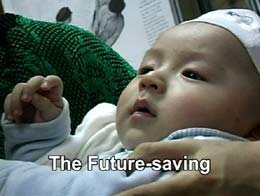
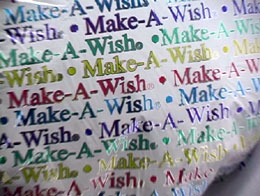
|

|
|
|





